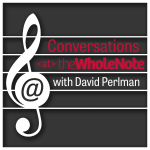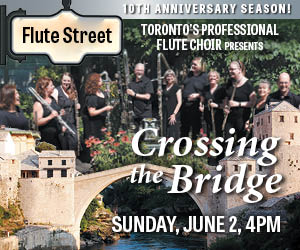Who's Diversifying – and Who's Not
|
About a month ago, when I first perused the brochure for Toronto Summer Music, it suddenly struck me that this is quite an unusual festival. In it, I found an array of prominent pianists, string quartets, and other ensembles – all playing classical music. What's up with that? Where are the Dixieland bands, the Celtic harpers and the guitar-wielding singer-songwriters that a summer festival is "supposed" to have? (To read what artistic director Agnes Grossmann has to say about her approach to programming, see my interview with her in the July-August issue of The WholeNote.) I'd like to say "brava" to Grossmann's programming. I’m pleased that in the year 2009 there’s at least one festival out there that isn’t ashamed to be just classical. |



